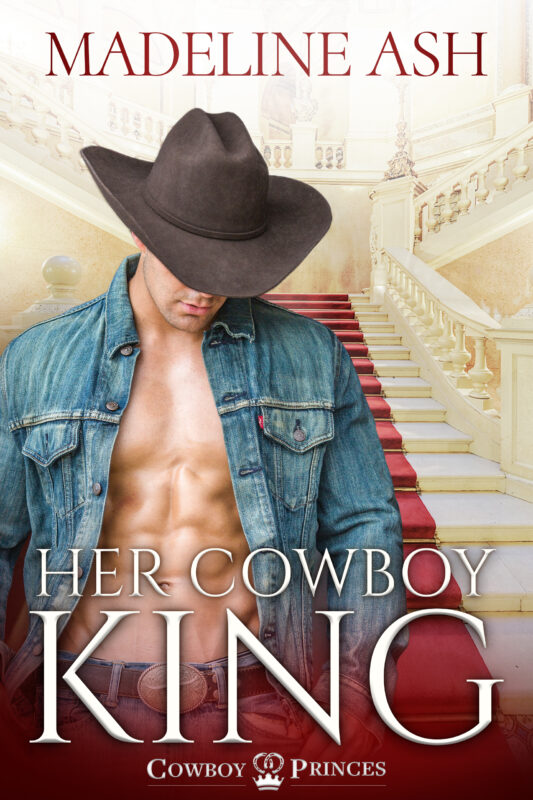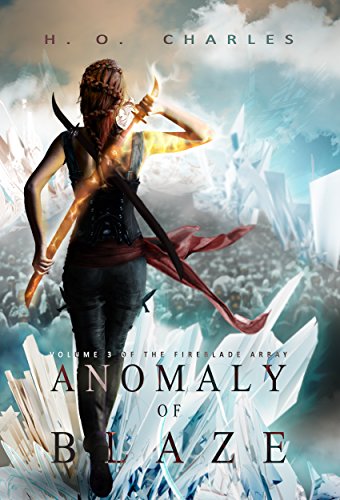Take Two
July 30, 2021 by Dianna Sinovic in category Quill and Moss by Dianna Sinovic tagged as fiction, short story, Take Two
Ramsey had exactly four dollars and thirty-three cents in his pocket. He knew because he’d just counted it out, to make sure he hadn’t dreamt a fifty tucked away in the far corners of his Levi’s. But no fifty; just the four crumpled singles, plus the loose change. And a seashell, small, striped, and whorled. Ramsey tried to recall why he had the shell—and where the rest of his money had gone.
His fingernails were grimy, and he needed a shave. Or maybe a shower and a shave. And if someone offered him a paper cup of coffee at that moment, he wouldn’t have turned them down.
Those were his thoughts at twelve-thirty that morning. The time he knew for a fact because the bank across the street from where he stood said so, in a blinking green display. The bank’s ATM beckoned him, an oasis to replenish his meager pocket of money, if only he had something to withdraw.
Ramsey crossed the street anyway, drawn to the lighted cash machine. This was not a good place to hang out at that hour, on that street in Philadelphia, a dim array of storefronts shuttered for the night. The alleys sometimes echoed with the moans and cries of unknown deals gone bad. He always passed them quickly, keeping to the shadows when he could.
Next to the bank’s ATM, on the building just to the left, a smaller, illuminated sign advertised: Books. Ramsey didn’t see any books in the windows of that narrow slice of real estate. A grid was pulled down over them, protection against random thievery. He turned away, but stopped when an interior light blinked on. A chain rattled behind the door, and the entrance opened.

A man a few inches taller and a few years older than Ramsey had one hand on the door handle. His dark eyes observed Ramsey beneath bushy eyebrows. Stepping back, he gestured for Ramsey to enter. A ring on his hand glittered a ruby red. “I’ve been watching and waiting for you,” he said. His words rolled over Ramsey like waves crashing at the Jersey Shore.
“Me?” Ramsey’s voice squeaked into falsetto range. His hands trembled.
“Please come in, Mr. Ramsey.” He waited for Ramsey to pass through the door, then shut and locked it. Again with a gesture, the man indicated that Ramsey should follow him. The room smelled of dust and crumbling paper, the walls lined with bookshelves from floor to ceiling, the lights high above them shining faintly onto stack after stack of books.
At the rear of the shop, the shopkeeper, or Ramsey assumed it was the shopkeeper, slipped behind a massive chrome and glass counter. Ramsey faced him across the expanse and wondered why he was there.
“Reade,” the man said, and pushed a paper cup of coffee toward Ramsey. “Conlan Reade. Do you take cream or sugar?”
“Just black,” Ramsey managed to say. He stared into the cup, the tint of the dark brown liquid mirroring the sepia quality of the shop. “Thank you.”
“A special Colombian blend,” Conlan Reade said. “I hope you enjoy it.” He smiled as Ramsey took a sip.
It tasted of dense jungle growth and the wild brilliance of tropical flowers.
“You’re open kind of late,” Ramsey said, savoring the coffee. It had been how many days since his last cup? Looking down at his jeans, he noted that they were as grimy as his hands felt. Was he sleeping on the street these days? Why couldn’t he remember?
Conlan Reade set down his own cup and spread his hands. “At this hour, I’m only open for you, Mr. Ramsey. As I told you at the door, I’ve been waiting. Your book came in.”
“Book?”
But Conlan Reade had stepped away from the counter, leaving Ramsey alone with his thoughts. And try as he might, he could not recall ordering any book anywhere. He had no home anymore, he knew then, no comfortable, quiet place to read.
“Here it is,” Conlan Reade said. He placed a thin, hardback volume on the glass of the counter.
Ramsey put down his cup and reached for the book, then pulled his hands back before touching it. His face flushed. “I’m kind of down on my luck,” he said, wiping his hands on his jeans.
“Don’t worry about it,” Conlan Reade said. He handed him a towelette from a container that Ramsey hadn’t noticed. “I think you’ll like the book.”
After cleaning his hands, Ramsey once again reached for the book. Another Life to Live. He leafed through the pages, curious as to why he would have ordered that title. He remembered how little money he had with him, sighed, and put the book back down.
“Thanks for ordering this,” he said. “I don’t think I can afford it right now, though. I’m so sorry.” Again his face flushed.
“It’s surprisingly inexpensive,” Conlan Reade said. He punched a few keys on a small calculator. “Only four dollars and thirty-three cents. I’ll wrap it up for you.”
Ramsey laid out the money, folded the receipt and slipped it into his now penniless pocket. He felt the seashell and pulled it out.
“I might as well give this to you, too, Mr. Reade. I have no use for it.”
Conlan Reade examined the shell, using a magnifier he placed over his right eye. He handed it back. “You’ll be needing this,” he said. “Hold it to an ear when you are in need of direction.”
Not wanting to argue, Ramsey pocketed the shell. It was small, after all; no trouble, really.
“Good luck, Mr. Ramsey.” Conlan Reade walked him to the door of the shop and shook his hand.
Two blocks later, Ramsey turned a corner and halted under a streetlamp. He removed the wrapping from the book, and tossed the paper into a nearby receptacle. Tipping the cover to the light, he read the author’s name: A.L. Ramsey.
Once upon a time, he’d answered to Arthur Lewis Ramsey.
Ramsey opened the book and began to read.

More of Dianna’s short stories can be found in the following books.
Birthday Wishes
May 30, 2021 by Dianna Sinovic in category Quill and Moss by Dianna Sinovic tagged as Birthday Wishes, fiction, short story

The first rays of the sun reached Zoë’s backyard shrine. They bathed the structure in slanted, golden stripes, as light filtered through the branches of the maples. Zoë knelt in front of the assembled stones and the small, smiling Buddha. She didn’t claim any religion, but she liked the way the Buddha looked, the way he seemed to know her thoughts, even if he was just an eight-inch-high statue from a local curiosity shop.
The rubber garden kneeling pad made the knees of her leggings damp, and she could feel the slight breeze from the south, from the foothills, as it lifted her bangs. Shivering slightly, Zoë placed her hands on the broad granite that formed the base of the shrine. The coolness of the rough stone added to her chill. By midday, she would walk through the yard in only shorts and a lightweight tee, but at this early hour, the temperature hovered in the forties.
Still, it was important to be there, as the sun rose, to let Daniel know that she remembered.
“Happy birthday, Danny,” she said. She stared at the smiling Buddha as though he were a stand-in for her friend, who had been neither short nor fat, nor a god. Daniel’s smile had buoyed her more times than she could count, though, and she missed him for that and for other reasons.
He was buried four hundred and twenty-three miles away, and because that was an inconvenient distance to visit his grave often, she had erected the shrine.
“It’s been four years, and I miss you still.”
The small things matter in friendships as much as the cosmic ones. He knew her preference for horror films (always and ever after The Shining); he brought her Ecuadoran coffee by the half-pound and ground it precisely for her French press pot; he was the only person who held her confession that she regularly cheated at poker. He might have been her lover—she held that truth deep in her heart.
Zoë dipped her fingers into the font next to the Buddha and kissed her fingertips before massaging the statue’s round belly. “This is for you, Danny. My luck is holding, but I’m sure you could use more wherever you are.”
In addition to the Buddha, the font, and the stones, the shrine had room for a ceramic vase filled with several red roses. The sun, now full above the horizon, made the moisture on the rose petals glisten and sparkle. The day would be a fine one, and Zoë would not left herself be dragged down into dark memories: his frail hand as it lay in hers, she waiting there beside his bed as his body shut down.
“Happy thoughts, Danny,” she said, her voice catching in her throat.
And then, as she watched, her mouth open in astonishment, the rose petals released one by one from their sepals, drifting down toward the granite. Instinctively, she turned her palms up, letting the back of her hands rest on the shrine, and felt petals settle there.
She brought her cupped hands to her face and inhaled the scent. Except that it wasn’t the lush aroma of roses but the nuttiness of coffee—Ecuadoran coffee. When she opened her palms to look, her hands were filled with coffee beans.
The Buddha smiled at her. Or maybe it was really Daniel’s smile.
Laughing, Zoë carried the handful of beans inside and made a pot of coffee.
0 0 Read moreFish Tale by Dianna Sinovic
March 30, 2021 by Dianna Sinovic in category Quill and Moss by Dianna SinovicTwo months into the job, and Cordi knew every regular’s preferred beverage. She could sift the deadbeats from the barflies who had dough, and had memorized The Bartender’s Guide, from the Apple Martini to the White Knight. Mostly, she poured and listened.

The Flying Fish did a brisk business at dinner of seafood and burgers, and then stayed open until two with a part-time night cook in the kitchen for late-hour snacks. Cordi worked the Thursday-Friday late shift, the shift with the best tips.
“Fish and rings tonight, Skip?” Cordi set a frosty glass of ale in front of her favorite regular. He might be fifty—or eighty. She didn’t know, and at twenty-two, anyone older than thirty seemed ancient. Skip Jowett’s beard was more salt than pepper, and he wore a battered captain’s hat, the only remnant left, he said, of his long years skippering a fishing boat off the Jersey Shore. He was quiet. Even as the hours passed and he asked for yet another tall one, he never grew belligerent – or fell asleep, spilling his drink.
“How about the halibut?” He was more somber than she’d seen him.
“Everything okay?”
He waved her away. “Fine, fine. Tell Drew I want the fish extra crispy. And the onion rings, too.”
After passing on the order to the kitchen, Cordi switched her attention to the others at the bar but kept an eye on Skip. He sipped his ale and watched the basketball game, but he was distant, distracted.
Drew’s fish platter momentarily brightened Skip’s face. He pushed his ale aside, tucked a napkin into his polo shirt, and with a wink at Cordi, got down to business.
“If you want to talk, I’m here,” she said. “Scout’s honor, whatever’s bothering you stays here. It’s like client privilege, for barkeeps. We don’t gossip.” Then she walked away, to let him think it over.
At a quarter to midnight, Skip finally motioned to her.
“Another Belgian?”
He shook his head. “I’ve had enough, too much probably.” He placed a fifty on the smooth wood. “That should cover it.”
Cordi put her hand on his, feeling the roughness of the skin, the prominent veins. “You need me to call a cab?”
The clink of glasses and the roar of the crowd on the TV filled the silence he let linger. “In a few minutes, I’ll have been married forty-five years. That’s a lifetime. Tomorrow she’s going into hospice. Hell of a way to celebrate an anniversary.”
0 0 Read moreComing into Focus by Dianna Sinovic
January 30, 2021 by Dianna Sinovic in category Quill and Moss by Dianna Sinovic tagged as description, descriptive writing, details, scenes, writingFrom our archives:

The devil is in the details—not only when moving forward with any plan—or with life, but also when working to make a novel, short story, or even narrative nonfiction come to life for the reader.

In the following examples—selected randomly from my bookshelves—the specificity of the details pulls you right into each scene.
The slick black road became narrower, windier, became the single-lane track I remembered from my childhood, became packed earth and knobbly, bone-like flints.— from The Ocean at the End of the Lane by Neil Gaiman
His eyes had the bluish gray color of a razor blade, the same polished shine, and as he peered up at me I felt a strange sharpness, almost painful, a cutting sensation, as if his gaze were somehow slicing me open. — from The Things They Carried by Tim O’Brien
Her clothes can stay behind—her humble pale-print dresses, her floppy hat. The last library book can remain on the table under the sagebrush picture. It can remain there, accumulating fines. — from “The Jack Randa Hotel” in Open Secrets by Alice Munro
With just a few precise details, the authors do more than describe; they weave their tale. The road in Gaiman’s story speaks of the character’s childhood, perhaps a rough one, based on the bumpy flints. The razor-like stare of the man in O’Brien’s scene lets us know the main character has met someone from whom it may not be easy to disengage. And while we know that Munro’s character visits the library, the urgency of her departure makes an overdue book seem trivial.
So, details, yes, but only the right ones. That’s something I struggle with in my writing. As a former journalist, I was taught to focus on the who-what-when-how, so I’m prone to put in too much information.
Earlier this summer I was fortunate to hear Colum McCann speak at the Rutgers Writers Conference in New Jersey. I loved his Let the Great World Spin, and I wasn’t disappointed by what he had to say. In his keynote, he told us of his travels across America when he first arrived in the U.S. from Ireland. All interesting, entertaining stuff, especially when told in his lilting accent, but what really resonated with me was what he called “the beauty of the extreme detail.”
It’s finding the one bit of description to insert in the scene that makes your reader believe that what you’ve described is true. How do you find that one perfect bit? Through your research, of course, whether the research of human experience, through interviews, or by Internet searches.
McCann offered for his example his research into the world of ballet while working on Dancer. After spending hours of time hanging out with a ballet de corps, learning the terminology, the joys and frustrations, the daily life of a dancer, he took his young daughter to see their production of The Nutcracker. He later shared with the dancers his daughter’s hands-down favorite scene: the Waltz of the Snowflakes, with the snow drifting down. It was, the daughter said, magical.
Instead of agreeing with him, the dancers groaned: That scene was their least favorite. The “snow” that fell was swept up after every performance and set aside to let loose at the next one, without filtering out any of the dirt and debris that might have been on the stage. The dancers told McCann that the only thing they could think of when the “snow” began falling was that they would need to wash their hair.
He said that nugget of detail gave him more cred among dancers who read his book than if he had used other, more mundane descriptions of the corps.
I can’t say that I no longer struggle with the details in my WIPs, but they don’t devil me quite as much.
How do you decide which details to include in your writing?
1 0 Read more
A Surprising Mystery by Dianna Sinovic
December 30, 2020 by Dianna Sinovic in category Quill and Moss by Dianna Sinovic tagged as Isaac Asimov, mysteries, science fiction

My favorite books as a tween were solidly in the science fiction and adventure realms. My father introduced me to his favorite authors: Bradbury, Asimov, and Heinlein, and the public library helped me find others. I was astonished by the breadth of Asimov’s Foundation trilogy, a series of stories about a Galactic Empire that predated by several decades the evil empire created by George Lucas. (A TV series version of Foundation is due out in 2021.)
As an adult I moved down a different reading path, in part because of the various book clubs I joined. Most were interested in either literary classics or women’s fiction, neither of which almost never included science fiction.
But lately, I’ve returned to reading the genre—loving The Sparrow and its sequel, Children of God, for example. And I discovered something new about Isaac Asimov: He also wrote mysteries. At a virtual writers conference I attended this year, a presenter mentioned Tales of the Black Widowers, a collection of short stories by Asimov that Ellery Queen’s Mystery Magazine published in the 1970s. I found a used copy online and dug in.
The set-up seemed somewhat dated: This is a men’s-only club that meets monthly, and women are forbidden to attend. But the stories themselves are fun little mysteries, with one character (not giving anything away) who is particularly astute at solving the puzzling situations presented. I was delighted to find out that the Black Widowers has several sequels, the first of which not surprisingly is called More Tales of the Black Widowers.
This is the centennial year of Asimov’s birth, with only a few days until that ends (on Jan. 2). He was a prolific writer, author of hundreds of books and stories, as well as being a biochemist and professor.
Speaking of mysteries, it’s nearly time for the Bethlehem Writers Group’s annual short story contest, which opens Jan. 1, 2021. The contest theme is An Element of Mystery. So, sharpen your pencils and get busy crafting your version of the mystery story.

0 0 Read more
Affiliate Links
A Slice of Orange is an affiliate with some of the booksellers listed on this website, including Barnes & Nobel, Books A Million, iBooks, Kobo, and Smashwords. This means A Slice of Orange may earn a small advertising fee from sales made through the links used on this website. There are reminders of these affiliate links on the pages for individual books.
Search A Slice of Orange
Find a Column
Archives
Featured Books
GIRLFRIENDS & SECRETS
Alexandra “Alex” Miller and her best friends are more like sisters. They live by the code that a good girlfriend will stick by you and be honest with you not matter what.
More info →A SOLDIER’S ITALIAN CHRISTMAS
A soldier and a nun discover forbidden love in war-torn Italy during the winter of 1943.
More info →SNOWLANDS
Will she be able to accept the person her memories describe?
More info →ANOMALY OF BLAZE
A new monster has taken up residence in her mind...
More info →Newsletter
Contributing Authors
Search A Slice of Orange
Find a Column
Archives
Authors in the Bookstore
- A. E. Decker
- A. J. Scudiere
- A.J. Sidransky
- Abby Collette
- Alanna Lucus
- Albert Marrin
- Alice Duncan
- Alina K. Field
- Alison Green Myers
- Andi Lawrencovna
- Andrew C Raiford
- Angela Pryce
- Aviva Vaughn
- Barbara Ankrum
- Bethlehem Writers Group, LLC
- Carol L. Wright
- Celeste Barclay
- Christina Alexandra
- Christopher D. Ochs
- Claire Davon
- Claire Naden
- Courtnee Turner Hoyle
- Courtney Annicchiarico
- D. Lieber
- Daniel V. Meier Jr.
- Debra Dixon
- Debra H. Goldstein
- Debra Holland
- Dee Ann Palmer
- Denise M. Colby
- Diane Benefiel
- Diane Sismour
- Dianna Sinovic
- DT Krippene
- E.B. Dawson
- Emilie Dallaire
- Emily Brightwell
- Emily PW Murphy
- Fae Rowen
- Faith L. Justice
- Frances Amati
- Geralyn Corcillo
- Glynnis Campbell
- Greg Jolley
- H. O. Charles
- Jaclyn Roché
- Jacqueline Diamond
- Janet Lynn and Will Zeilinger
- Jeff Baird
- Jenna Barwin
- Jenne Kern
- Jennifer D. Bokal
- Jennifer Lyon
- Jerome W. McFadden
- Jill Piscitello
- Jina Bacarr
- Jo A. Hiestand
- Jodi Bogert
- Jolina Petersheim
- Jonathan Maberry
- Joy Allyson
- Judy Duarte
- Justin Murphy
- Justine Davis
- Kat Martin
- Kidd Wadsworth
- Kitty Bucholtz
- Kristy Tate
- Larry Deibert
- Larry Hamilton
- Laura Drake
- Laurie Stevens
- Leslie Knowles
- Li-Ying Lundquist
- Linda Carroll-Bradd
- Linda Lappin
- Linda McLaughlin
- Linda O. Johnston
- Lisa Preston
- Lolo Paige
- Loran Holt
- Lyssa Kay Adams
- Madeline Ash
- Margarita Engle
- Marguerite Quantaine
- Marianne H. Donley
- Mary Castillo
- Maureen Klovers
- Megan Haskell
- Melanie Waterbury
- Melissa Chambers
- Melodie Winawer
- Meriam Wilhelm
- Mikel J. Wilson
- Mindy Neff
- Monica McCabe
- Nancy Brashear
- Neetu Malik
- Nikki Prince
- Once Upon Anthologies
- Paula Gail Benson
- Penny Reid
- Peter Barbour
- Priscilla Oliveras
- R. H. Kohno
- Rachel Hailey
- Ralph Hieb
- Ramcy Diek
- Ransom Stephens
- Rebecca Forster
- Renae Wrich
- Roxy Matthews
- Ryder Hunte Clancy
- Sally Paradysz
- Simone de Muñoz
- Sophie Barnes
- Susan Squires
- T. D. Fox
- Tara C. Allred
- Tara Lain
- Tari Lynn Jewett
- Terri Osburn
- Tracy Reed
- Vera Jane Cook
- Vicki Crum
- Writing Something Romantic
Affiliate Links
A Slice of Orange is an affiliate with some of the booksellers listed on this website, including Barnes & Nobel, Books A Million, iBooks, Kobo, and Smashwords. This means A Slice of Orange may earn a small advertising fee from sales made through the links used on this website. There are reminders of these affiliate links on the pages for individual books.



















































